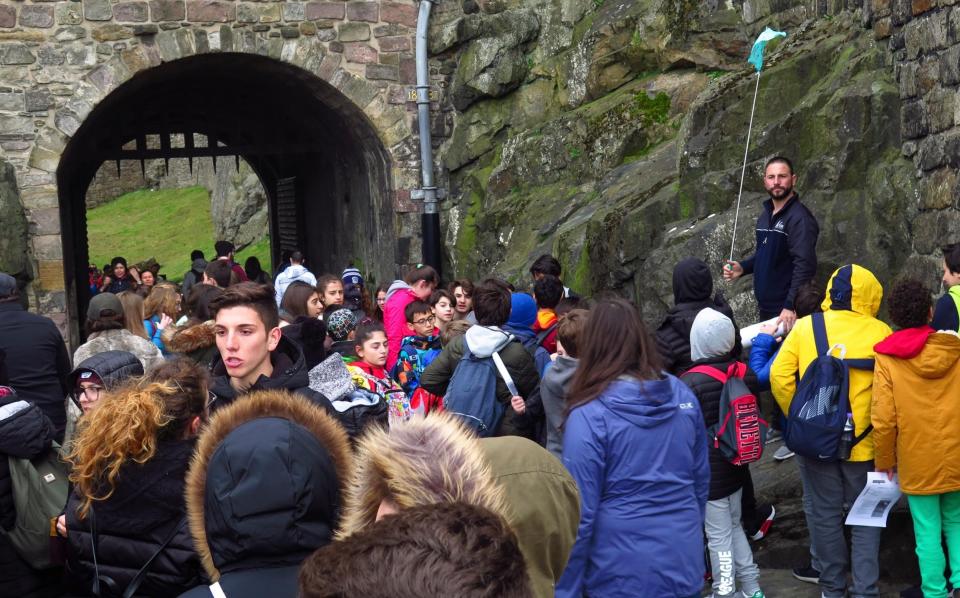Scottish tour guides told to address visitors as ‘grown-ups’ instead of ‘mum and dad’

Tourist guides at some of Scotland’s most famous historical sites are being urged to call families “buddies” and “grown-ups” in a drive for gender-neutral language.
Historic Environment Scotland (HES), who run hundreds of attractions including Edinburgh Castle and Glasgow Cathedral, have recommended staff use the term “adults” in place of “mum and dad” for visitors.
“Ladies and gentlemen” should also be replaced with “folks” or “everyone”, according to the guidance first obtained by the Scottish Sun.
Employees who “make a mistake” are recommended to publicly “apologise and learn” if they are corrected by a guest.
HES has stressed that the guidance does not categorically ban specific words and is designed to ensure staff “do not presume someone's background”.
Rachael Hamilton, the Scottish Tory spokesperson for Rural Affairs and Islands, said the advice though “well-intentioned” is “lacking in all common sense” and called for HES to “scrap the stifling guidance”.
She said: “By telling staff not to use these completely normal words and phrases, HES has only ensured staff will spend more time second-guessing themselves than engaging with visitors to Scotland’s most famous attractions.
“They should scrap this stifling guidance and allow employees to do their jobs and express themselves freely and naturally on the topics they know best.”
‘Pushing a political agenda’
The guidance, titled Inclusive Language - LGBT+ guidance for customer-facing colleagues’ - has been distributed in the form of an online table to all staff who welcome the five million visitors a year to the attractions all across the country.
Non-inclusive terms like mum and dad are changed to grown-ups or adults while sister or brother are changed to friend, buddy or everyone.
Him/her and she/he are changed to they/their/we/our and phrases including son or daughter are altered to children instead.
It says: “The most important thing is to avoid presuming that you can accurately tell a person’s gender or background.
“It is better to use gender-neutral and inclusive language so that everyone feels welcomed and respected.
“If you realise you have made a mistake, apologise as soon as you can. You could do this in public to help the person feel you have taken them seriously. Or you may consider doing so in private if it’s more appropriate.”
Marion Calder, the co-director of For Women Scotland, said the guidance “pre-supposes everyone is permanently wired to be offended”.
‘Check their thinking’
She told the Scottish Sun: “What this is really about is pushing, yet again, a political agenda and supporting self-ID.
“This is drifting into compelled speech or to put it another way, requesting staff to check their thinking.”
HES have said the guidance does not ban the use of any words or phrases.
A spokesperson said: “Our guidance for Visitor Operations staff categorically does not ban the use of any words or phrases - it gives some examples of commonly used language and suggests more inclusive alternatives.
“This is to ensure our staff can avoid presuming a person’s background and use inclusive language so that everyone feels welcomed and respected.”

 money
money 